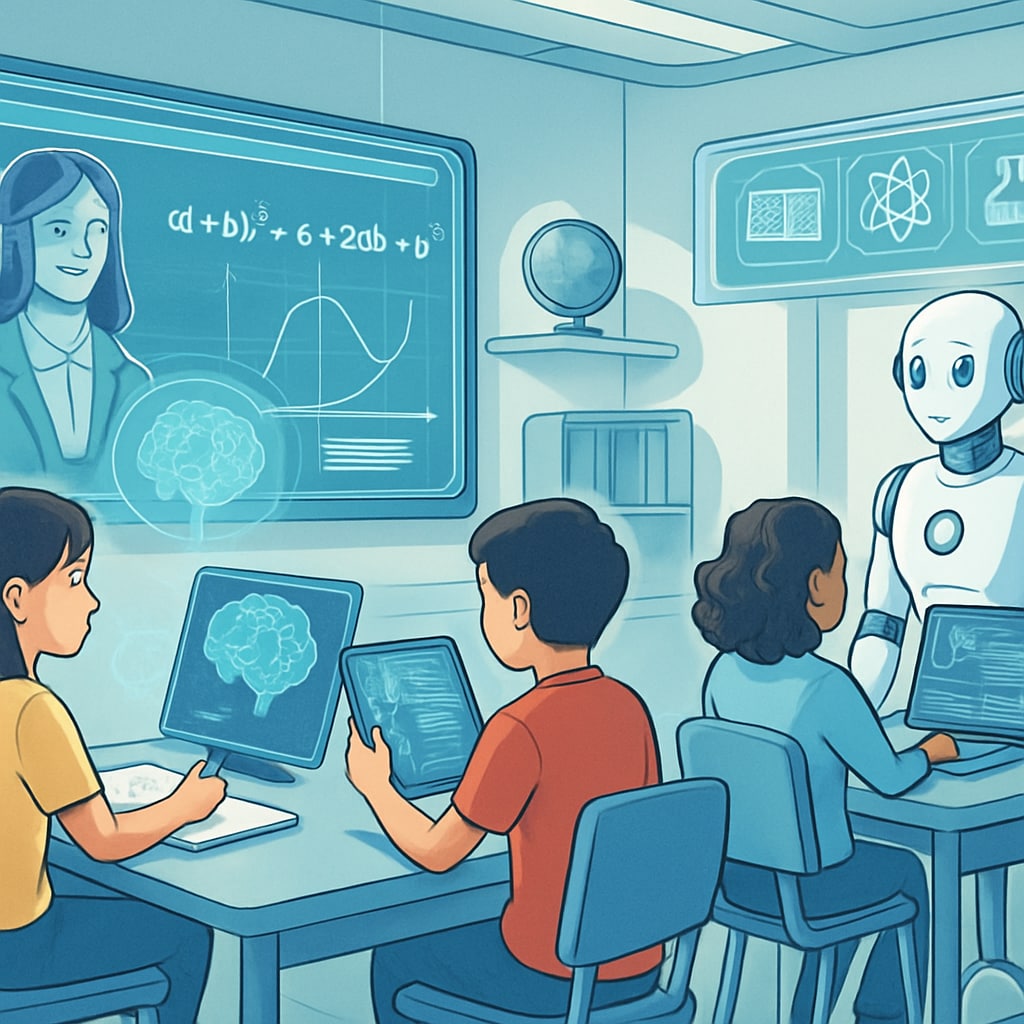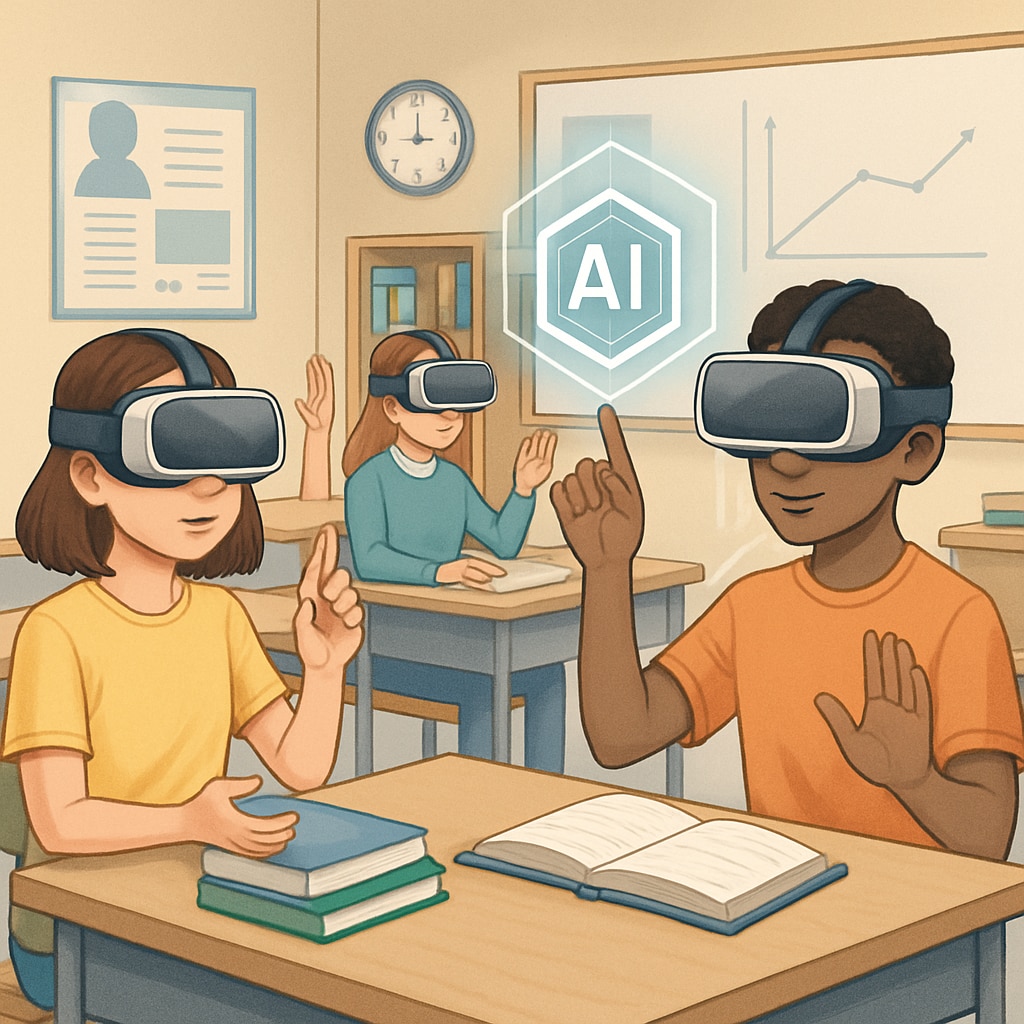Artificial intelligence (AI) is rapidly transforming industries worldwide, and its application in school education is set to revolutionize K12 classrooms in the coming years. As AI continues to advance, it is redefining teaching methods, enhancing learning experiences, and reshaping educational assessment models. This article dives into the future of AI in education, exploring how educators can embrace this transformation to benefit students and schools alike.
How AI Is Redefining Teaching Methods
The integration of AI into teaching methods is enabling personalized instruction tailored to individual student needs. Unlike traditional one-size-fits-all approaches, AI-powered tools analyze student performance data to identify strengths and weaknesses, allowing educators to adjust their teaching strategies dynamically. For example, intelligent tutoring systems can provide real-time feedback and adaptive learning paths, ensuring each student progresses at their own pace.
Moreover, AI-driven automation is reducing administrative burdens for teachers. Tasks such as grading assignments, tracking attendance, and generating reports can now be handled by AI systems, freeing up educators to focus on creative lesson planning and student engagement.

Enhancing the Learning Experience Through AI
AI is making learning more engaging and accessible for students. Virtual reality (VR) and augmented reality (AR) applications, powered by AI, are creating immersive educational experiences that bring abstract concepts to life. For instance, a history lesson can transport students to ancient civilizations, while a science class can simulate complex experiments in safe virtual environments.
Additionally, AI is breaking down barriers for students with disabilities. Speech recognition systems, text-to-speech converters, and predictive text technologies are empowering learners with special needs to access curriculum materials and communicate more effectively.
As a result, AI is fostering inclusivity and ensuring that no student is left behind, making education truly universal.

Reshaping Educational Assessment Models
Traditional assessment methods often fail to capture the full range of a student’s abilities. AI is addressing this gap by introducing more holistic evaluation systems. For example, AI algorithms can analyze student work beyond basic grades, assessing creativity, problem-solving skills, and collaboration abilities. Machine learning models can review written essays for nuanced insights, such as argument quality and tone, offering more comprehensive feedback.
In addition, predictive analytics is helping educators identify students at risk of falling behind, enabling timely interventions. By analyzing behavioral patterns and academic performance, AI systems can suggest targeted support programs to improve outcomes.
This shift toward smarter assessments is providing educators with actionable insights that drive better teaching and learning strategies.
Opportunities for Educators in a Changing Landscape
While AI offers immense benefits, educators need to adapt to its growing influence in classrooms. Professional development programs focused on AI literacy can equip teachers with the knowledge and skills to leverage AI tools effectively. Collaboration with AI developers and researchers can also ensure that educational technologies align with pedagogical goals.
Furthermore, schools must prioritize ethical considerations when deploying AI systems. Privacy concerns and data security must be addressed to safeguard sensitive student information. Educators, policymakers, and technologists must work together to create transparent guidelines for AI use in education.
By proactively addressing these challenges, educators can lead the transformation of K12 education, turning AI into a powerful ally for teaching and learning.
In conclusion, artificial intelligence is set to revolutionize K12 school education in the next decade. From personalized teaching methods to immersive learning experiences and smarter assessments, the potential of AI is boundless. Educators who embrace this transformation will not only enhance student outcomes but also shape the future of education itself.
Readability guidance: This article uses concise paragraphs and clear transitions to ensure accessibility for a wide audience. Lists and subheadings summarize key points, while maintaining a focus on active voice and avoiding overly technical jargon.


